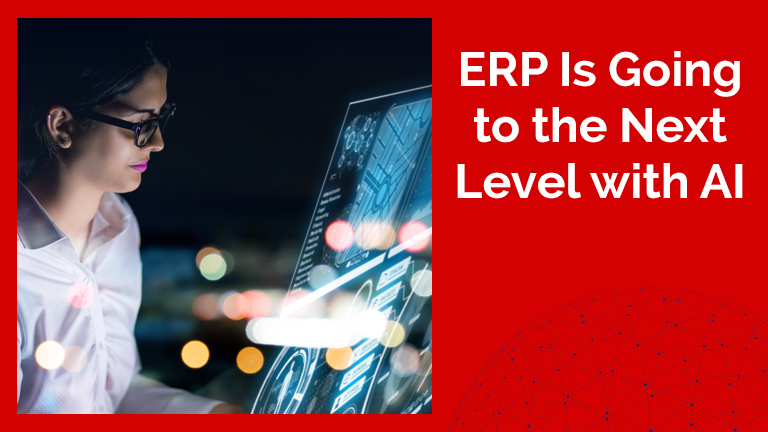
Businesses that adopted enterprise resource planning software from the beginning have been setting the pace for competition in many industries. That’s because ERP allows you to do more with the resources you have, elevating small companies into powerhouses without requiring the huge infrastructure investments and large workforces that used to be necessary to marshal that kind of energy. Now, more and more companies are finding they have to adopt AI to stay in the marketplace, because the window of expectation has shifted. If you’re looking for the next cutting-edge innovation that will set you apart with an edge like early ERP adopters got, you need to know what’s going on with ERP and AI.
Artificial Intelligence Powering Resource Planning
Advances in machine learning have made it possible to build systems that automatically detect changes and adapt, becoming responsive to patterns in their environment. When these analytical tools are built into ERP systems, the result is powerful.
In ways that many companies use ERP functionality to detect when you’re getting low on supplies and order them before things reach a critical point, AI capabilities can improve the process by identifying the issue, reviewing the upcoming delivery dates and changing production schedules to ensure there are no missed deadlines.
Another example of AI integration with ERP that may significantly create value to businesses that use Work Order processing is learning from work order history.  The system can use this history and knowledge to assist the user by providing information and recommendations of schedules, inventory, resource skills and more.
Benefits of Machine Learning and Automated Resource Planning
Machine learning brings a host of benefits that make ERP and AI much more powerful than ERP alone, and automated resource planning is one of the biggest benefit opportunities. With the right AI, it’s possible to eventually get the day to day management of work order workflow items simplified to a process you can review in minutes. The AI will analyze the speed of work and set up or tear down times for each project and revise ever more accurate budgets for productive time based on past performances. While no estimate can ever be guaranteed, the analytics used in making projections in AI systems lead to more accurate estimations because they are based on a more complete collection of data.
In addition to work order processing, another area vital to company productivity is with equipment management. We are noticing trends in automated equipment maintenance where AI is constantly monitoring and collecting data in ERP systems, and companies are starting to leverage the technology to minimize equipment downtime due to failures or prolonged maintenance.
ERP Data Sets and AI Analytics
ERP systems have always collected vast amounts of data and with the trend toward more automated data collection, this volume will continue to grow rapidly. AI systems can be much more effective at spotting trends in this data and taking action or highlighting them for review and follow up where the trend would not have been noticed before, buried in all that data.
ERP and AI together are a powerful combination and businesses that take advantage of these benefit opportunities early can produce cost and productivity savings that quickly add up to a favorable ROI from the technology. There are many use cases for ERP and AI for improving business activities and those companies that implement the AI technology into their way of doing things will reap the rewards as those companies that had embraced ERP early.